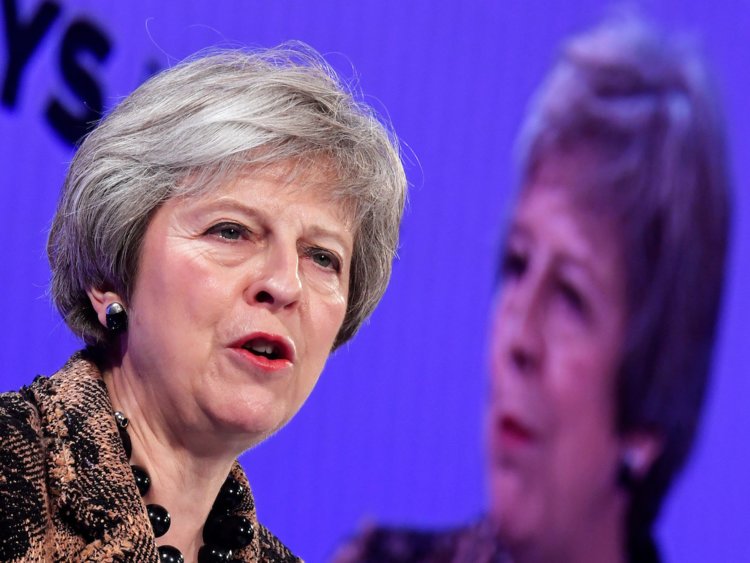
The failings in Brexit negotiations: Second vote on referendum gains momentum
Time is running out for the United Kingdom (UK) to secure a good deal from the European Union (EU) before it officially exits the continental body by March 30, 2019.
From all indications, Prime Minister Theresa May is worried, as she is not having it easy having her proposals for a better deal readily accepted by the EU.
Advertisement
The frustration and confusion that rocked the May administration over what some of her ministers believed to be her incompetence in handling the Brexit negotiations, got the former Foreign Secretary, Boris Johnson, and the former Brexit Secretary, David Davis, resigning from her cabinet.
There were reports that more resignations were to follow if the Prime Minister did not step up her negotiation skills to secure Britain a better deal to satisfy all sections of the country, especially Scotland that is threatening another independence referendum, if the Scottish people are short-changed in the negotiations.
The question about resolving issues about the Irish border is also a concern to the Irish government and no wonder tens of thousands of people poured out on the streets of London recently to demand a second vote on Brexit because the Brexiters claimed they were misled to believe that the referendum on June 23, 2016 was all about immigration.
Some of the people who voted Brexit in an interview with the Daily Graphic in London and other parts of the UK recently said their decision to vote the way they did was informed purely on grounds of immigration without taking into account other economic factors.
Prime minister frustrated
Mrs May’s frustration finds expression in the frequency with which she travels to Brussels to engage with Mr Michel Barnier, the Chief Negotiator appointed by the European Commission.
The Brexit engagements are the negotiations currently taking place between the UK and the EU for the prospective withdrawal of Britain from the European trade bloc following Britain’s decision to leave the union.
A negotiating period began on March 29, 2017 when the UK served the withdrawal notice under Article 50 of the Treaty on European Union. The period for negotiation stated in Article 50 is two years from notification, unless an extension is agreed.
The former Brexit Secretary, Mr Davis, on June 19, 2017 arrived in Brussels to begin negotiation of the terms of the withdrawal with Mr Barnier.
The scope of the ongoing negotiations includes the withdrawal agreement, a temporary transitional period agreement and another agreement for the post-transitional period.
Brexit ongoing negotiation also has to address the Free Trade Agreement treaties between the EU and its members, including Britain, on one part and third countries on the other part, and the tariff-rate quota, which might be split or renegotiated.
Irish border
Another issue of controversy is the question of the Irish border which is about the impact that Britain's withdrawal from the EU will have on the Republic of Ireland-United Kingdom border on the island of Ireland.
In particular is the obvious impact it may have on the economy and people of the Irish Republic where customs or immigration checks are to be put in place at the border which is being prioritised as one of the three most important areas to resolve in order to reach a withdrawal agreement.
Britain’s exit from the EU would effectively make the Republic of Ireland and the border of Northern Ireland an external EU border and all the parties in the negotiations have stated that they want to avoid a hard border in Ireland, particularly because of the sensitive nature of the border.
In 1922, the Irish Free State seceded from the UK, while Northern Ireland chose to remain in the UK and the border between the two entities became an international frontier.
Trade in goods and services across that frontier became subject to differing tax and tariff arrangements and an infrastructure of Customs posts was put in place at designated crossing areas.
Traffic was subject to inspection by the jurisdiction it was passing in to. This could entail full vehicle searches with consequent delay and inconvenience. However, passport checks were not applied as the Republic of Ireland and Northern Ireland were part of the Common Travel Area.
Customs Union
One other matter of controversy hindering the negotiations is the question of whether or not Britain should remain in the Customs Union albeit they may be out of the EU.
A customs union is a group of states that have agreed to eliminate customs duties on trade between themselves, as well as reduce other administrative requirements. It also sees those states impose a common external tariff on imports from non-members.
The UK could negotiate a free trade deal with the EU, as Canada has recently done, which would give the UK access to the EU single market to sell its products but would not be part of the continental body.
Scotland is also watching closely to see how the negotiations would go to make a compelling case on whether or not to hold another independence referendum to keep Scotland in the EU, since that was the verdict of the Scottish of people in the Brexit referendum.
The First Minister of Scotland, Nicola Sturgeon, has sounded the alarm bells to Westminster that Scotland would have every reason to hold another independence referendum if the Brexit negotiations fail to address the concerns of Scotland.
I stand with the leader of the Labour Party in Britain, Mr Jeremy Corbyn, when he declared to the Conservative government led by Theresa May to stand aside to allow a labour government to come in and engage the EU more responsibly on the negotiations to secure a better deal for Britain.
Writer’s email: [email protected]



